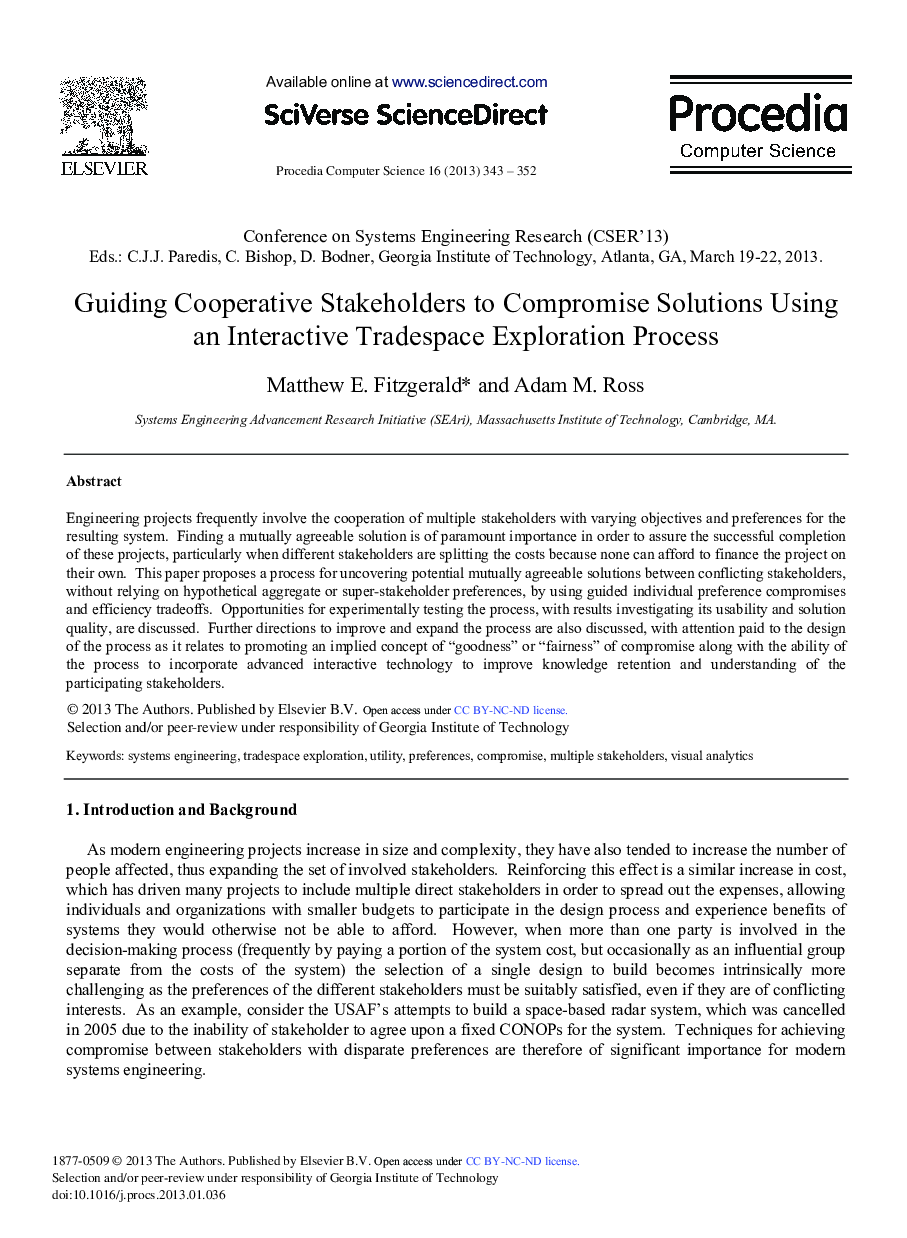| Article ID | Journal | Published Year | Pages | File Type |
|---|---|---|---|---|
| 486582 | Procedia Computer Science | 2013 | 10 Pages |
Engineering projects frequently involve the cooperation of multiple stakeholders with varying objectives and preferences for the resulting system. Finding a mutually agreeable solution is of paramount importance in order to assure the successful completion of these projects, particularly when different stakeholders are splitting the costs because none can afford to finance the project on their own. This paper proposes a process for uncovering potential mutually agreeable solutions between conflicting stakeholders, without relying on hypothetical aggregate or super-stakeholder preferences, by using guided individual preference compromises and efficiency tradeoffs. Opportunities for experimentally testing the process, with results investigating its usability and solution quality, are discussed. Further directions to improve and expand the process are also discussed, with attention paid to the design of the process as it relates to promoting an implied concept of “goodness” or “fairness” of compromise along with the ability of the process to incorporate advanced interactive technology to improve knowledge retention and understanding of the participating stakeholders.
